To deliver a strong all-round performance, today’s construction companies and contractors rely on a team of in-house specialists.
RedSky Product Manager Brendan Magill explains how, with the right construction ERP (enterprise resource planning) software solution in place, they’ll all have access to a single source of real-time information. And user-friendly tools to help drive up the efficiency and effectiveness of their business role.
Benefits of Construction ERP Software by Role
If you're in Finance or IT and are looking to select the right ERP system for your company, you may be wondering where to start. There are many construction ERP software solutions available in the marketplace, all promising to transform your business. Choosing the right one can be a tall order.
One way to separate the wheat from the chaff is to think about the specialist job roles and functions in your organisation and what they need from a construction ERP solution. We’ve provided some pointers below…
CEO, CFO and COO
The Chief Executive, Chief Financial Officer and Chief Operating Officer of an organisation all have to make high-level, strategic decisions affecting its direction, profitability and growth. They need to be able to access a concise overview of how the company is doing.
For an at-a-glance summary of key performance indicators (KPIs), emerging trends and accurate statistics, choose an ERP system that has real-time dashboards and can automate processes. These user-friendly displays can be tailored to the unique needs of each user role. Typically, the ‘C’ roles will want a high-level view of the following:
• Profitability
• Variations to budget
• Cashflow
• Financial strengths and weaknesses
• Manpower resources
• Asset utilisation
• Tender win/loss ratios – with filters such as region, project type and company.
Construction is one of the biggest sectors in the UK economy. Most large construction businesses are not a single entity. Instead, they comprise several limited companies, all under the umbrella of a group operating company. Each has to do its own set of management accounts, of course, but it’s important to be able to report at a consolidation level too.
CEO and Manager
If you need visibility of the entire group, make sure you choose an ERP solution that gives you fast access to a bird's-eye view of performance – company and individual projects. It should incorporate a RAG (red, amber, green) system that flags up the good, the bad and the ugly at an early stage and allows you to drill down to the detail if something doesn’t look quite right.
Make sure you can easily view KPIs at group, company, departmental and project level too. This may reveal, for example, that one of your companies is temporarily resource poor, while another isn’t. Features that fully support automated intercompany management will make life easier.
Centralisation and de-duplication of entries are two major efficiencies brought by the latest ERP solution. All data can be pulled down from the system and used for business analysis. Accuracy levels rise because there’s no need to keep re-keying data from different spreadsheets and other documents; instead, you have a single source of truth.
IT function
Your IT function has a leading role to play in selecting your new ERP solution. It needs to be part of the discussion from the outset.
By choosing a modern, cloud-based ERP system that’s managed by the supplier (partner), you'll be taking a huge weight off your IT function’s shoulders:
• Most of the installation and implementation work will be done by the supplier in the cloud
• An ERP solution brings lots of systems together – so everything will be in one place
• The system will integrate with other modern business solutions, such as HR and payroll
• The system will be highly configurable, to meet the needs of your business
• Your team will provide frontline support, but the supplier will be on hand to help users if needed
• Licensing and investment will be straightforward
• With no server, maintenance will be limited
• Hands-off software upgrades and back-ups will be music to an IT manager's ears
Effectively your IT service solution should run in the background, just like your gas, electricity and water supply. Ideally, it will be ‘always on’ and available, with very little effort needed.
Head of Procurement, Purchasing Manager and Equipment Manager
Supply chain management is an important part of running a successful construction and contracting business. And a modern ERP system can be a big help.
Think about how you'‘onboard' new supply chain partners for consultancy, materials, plant and subcontracted supply. You’ll no doubt assess them against your pre-qualification criteria. This may involve obtaining details or documents to confirm the experience and expertise of the people who’ll be doing the work; their insurance policies; and their health and safety policies. All this information can be recorded and then maintained on your ERP system.
Once a supplier is qualified and has been 'onboarded', your Procurement function can access the KPI data about the supplier on the system (through dashboards and reports) and rate the supplier against set KPI targets. Here are some typical examples. Are the expected materials always delivered on time, in the right quantity, in an acceptable condition? Do they help you meet your sustainability targets? Are they competitively priced? Are the invoices accurate? Is the plant reliable? How effective are your site-based subcontractors, from HR, health and safety, contractual and man-management perspectives?
Periodically, your teams will be able to run reports based on the data in the system, to see which suppliers are performing well or not so well. They’ll then use insights from these reports to set targets for the poor performers and incentivise the stars. They may also decide to use the system to analyse the annual spend on a particular material, such as concrete, over a three-year period. Based on this information they can then invite the top-three suppliers to tender for a sole-supplier rebate agreement. This could save the company thousands of pounds a year.
The latest ERP system should also incorporate real-time dashboards and alerts if things start going awry or a deadline is approaching. If an item of plant is due to be off-hired by the end of the week, for example, the system will send notifications on a daily basis until the task is complete. This can save thousands of pounds being racked up unnecessarily by a hired plant that’s lying unused and unnoticed in a quiet corner of the site.
Estimating and Planning Managers
Business intelligence fuels budgeting, estimating and planning roles in construction. The ability to review the costs and timelines of previous jobs is key to all three areas.
Choose an ERP solution with an integrated estimating and surveying solution. If you can, go for one that incorporates a detailed build-up facility as well as a take-off facility. With a fully-integrated ERP system, you’ll be able to build up an accurate picture of what’s involved in each task, the average time required and the net costs. With repetitive work, you can analyse the data to help you price realistically and hopefully win more work. And if fitting the windows took a week longer than expected, for example, you’ll be able to analyse the data in the system and find out why.
Make sure you 'backfill' tender information on the system. If you don't win a contract, it’s good to find out why, as well as who secured the contract and at what price. Don’t keep that information in your head. Enter it on the system. You’ll eventually be able to run a report on which types of tenders you’re winning and losing, as well as the reasons why. If you discover that with a particular client you’re always ‘pipped to the post’ by the same competitor, stop knocking on a closed door and focus instead on opportunities that you have a realistic chance of winning.
Project Manager (PM) and Quantity Surveyor (QS)
On a construction project, the PM and QS usually shoulder a greater number of responsibilities than any other role in the organisation. Once the contract has been signed, the PM and QS are key to ensuring that it is delivered on time, to budget and to the right quality.
It's vital that the ERP system includes full details of the formal contract award. To manage subcontractors and resources effectively, the PM and QS will need complete visibility on how the job was won and how it’s to be delivered.
Make sure the ERP system you choose will facilitate effective subcontractor package management. Having won the contract, your QS will be able to use the data in the system to go out for a 'second bite' with subcontractors. When the details are agreed upon, they’ll issue the orders via the agreed workflows. They’ll then manage the application and valuation cycles, using the ERP system to make sure everything happens in line with the contract itself and your organisation's guiding business and legal principles.
Once a job is underway, the PM must have fast access to accurate information on every aspect of the programme, to make sure the company achieves a successful outcome. A modern ERP system will fit the bill.
Human Resources (HR) function
The UK construction sector employs around 3.1 million people, which equates to more than 9% of the UK workforce. Your HR team is responsible for recruiting and onboarding new staff, as well as maintaining, updating and managing employee records.
With the right ERP software for HR in place, you’ll make their life a whole lot easier. Employee information will be held securely within the system, with only the latest version available, so there’s no danger of anyone relying on out-of-date details. Make sure you check out permission levels when you’re reviewing possible ERP systems – you’ll definitely want to restrict access to sensitive information.
Of course, a modern ERP solution for HR is far more than a mere electronic repository for static personal data (things like contact details, next of kin, home address, allergy information, bank details and salary). Look for a system that can convert all of your company’s personnel-related data and paper-based HR forms to an electronic format. Your HR team, managers, mentors and employees will complete standardised digital forms on their desktop, laptop, tablet or mobile. And the data will be uploaded automatically onto the system and safely stored.
Reports that may previously have taken your HR team hours or even days to complete will be available at the touch of a button. Based on real-time information, the report insights will enable informed decisions on a range of HR issues. Examples include managing absences; identifying and meeting the training and development needs of individuals, teams or departments; and benchmarking salaries, to retain a competitive edge in the recruitment arena.
An ERP system can also take the hassle out of timesheets and payroll. Employees complete a weekly electronic timesheet on their PC, laptop, tablet or mobile, detailing the jobs they’ve been working on (each has a unique code) and the time spent on each. Once the timesheet has gone through the electronic workflow approvals in the system, the data is uploaded automatically. Look for an ERP system that integrates HR, job costing and payroll because the information will need to be entered once only (rather than on three separate systems). It’s seamless.
And one last recommendation on the HR front: go for a cloud-based system. The pandemic has transformed work habits. With a cloud-based ERP system, your employees will be able to switch effortlessly between working from home and in the office. And your site managers will be able to complete forms on their laptop, tablet or mobile, even if there’s no wifi – the data will automatically upload to the system once an internet connection becomes available.
A note of caution about remote working: ask your ERP supplier about data security. You need 100% confidence that the data on your ERP system will be secure and accessible only by authorised users.
Legal and HSEQ functions
In construction, Legal teams and Health, Safety, Environment and Quality (HSEQ) teams must have a good handle on governance, risk and compliance (GRC). A modern ERP system should incorporate the necessary processes and procedures to help a business maintain good GRC at all times – and help with its environmental and social goals too.
Let's take purchase orders (POs) as an example. Choose an ERP solution with a robust 'stage gate' approach based on workflow approvals. For example, you would perhaps set up the system rules so that a £50,000 PO for building materials would require electronic approval firstly by the Head of Procurement, then by the Project Manager and finally by a director, before being forwarded to the supplier. Naturally, you wouldn’t need to apply the same rigour to a £5 order for paper clips.
The Building Safety Bill's requirement for a ‘golden thread’ of building information has really shone a bright light on information management processes. A successful ERP system must maintain a comprehensive audit trail. Because if there’s a problem in 10 years' time with a certain material that was used to construct a building, you’ve got to be able to access all the details quickly and easily.
How did you procure the material? Who supplied it? Had it been tested? What were the results? Who carried out the tests? Was it the material that was stipulated in the original bill of quantities? Who signed off the onsite installation? All this information needs to be retained in your ERP system, along with records of all related discussions and meetings. Full auditability is the end goal.
With a good ERP system in place, you’ll capture a wealth of manageable, reportable and auditable information. Observations, incident tracking and reporting will all be a piece of cake. And you’ll have the answers to hand if you’re asked to provide evidence about:
• Your accident/incident frequency rates
• The diversity of your workforce
• Your use of sustainable materials
• Your engagement with the local community.
It all boils down to quality. Phil Crosby famously said: "Quality is free. It's not a gift, but it’s free. The ‘unquality’ things are what cost money". If your company's quality management system sits within the ERP framework, everyone will know what the standards are and where to find them. All your standards, processes, procedures and guidance will be in the system, from how to mobilise your next new project to how to book a holiday.
There'll be no excuse for shortcuts and 'winging it'.
Choose an ERP Solution that will Futureproof Your Business
Look for an ERP solution that will enable key roles in your business to function more efficiently and effectively, as outlined above. Your teams will make decisions based on real-time data, working from a single source of truth. You'll integrate your procurement activity and optimise supply chain management.
Don't just focus on what your business needs today. Look five to ten years ahead and make sure you choose a system that’s scalable. Think about your future workforce, too. High-calibre recruits are more likely to consider joining your company if you’re using modern technology.
All the features and benefits we've highlighted in this article are incorporated in RedSky’s award-winning, cloud-based ERP software. Our construction management platform is a modular end-to-end solution that will make life easier for a variety of job roles within your organisation.
Brendan Magill is a Chartered IT Professional Member of the British Computer Society. He has 30 years of IT experience, from working in the smallest comms rooms with his sleeves rolled up to implementing strategic improvement plans for businesses of all sizes – primarily in the construction sector. His practical IT knowledge and skills are complemented by an MSc in Business Improvement.
To find out more about how RedSky can help transform your business read our customer news stories and Insights. If you have any questions, call us on 020 3002 8600 or get in touch via our contact form. We’d love to hear from you.
Construction News
03/03/2022
Using ERP Software For Different Business Roles

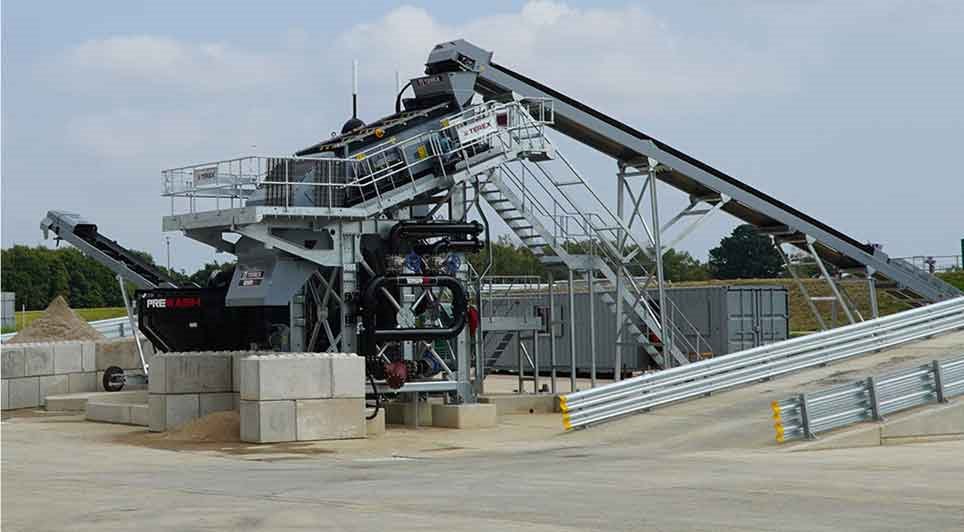
18/02/2025
Farrans Construction has began works on a major £30m water infrastructure project that will benefit over 300,000 people across Essex.
This is the second phase of the work included in the investment by Essex & Suffolk Water, which is upgrading its Layer Water Treatment Works (WTW) in Layer de la Hay
18/02/2025
GMI Construction Group is making significant strides on the second Dakota Hotel being built in Manchester, located near Manchester Airport.
The base slabs have been completed and the reinforced concrete frame is already rising from the ground.
Scheduled to open in 2026, the 154-bedroom Dakota Man
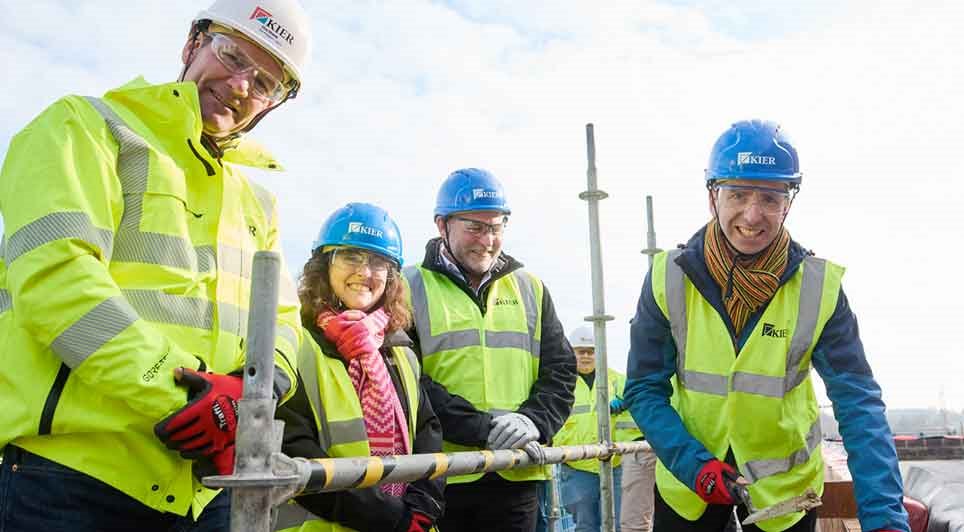
18/02/2025
A major milestone was reached at the Watford Riverwell regeneration project with the topping out of Block 10, a four-storey block of maisonettes featuring 12 affordable housing units.
This event marks the completion of the highest point of construction for the first phase of the Avenues residentia

18/02/2025
When it comes to safety footwear in construction and heavy industries, choosing the right pair of boots is crucial.
Introducing the Herd RF205 Rock Falls tough all-round safety boot, a remarkable option designed to provide unparalleled strength, waterproofing, and comfort for those who work in dema
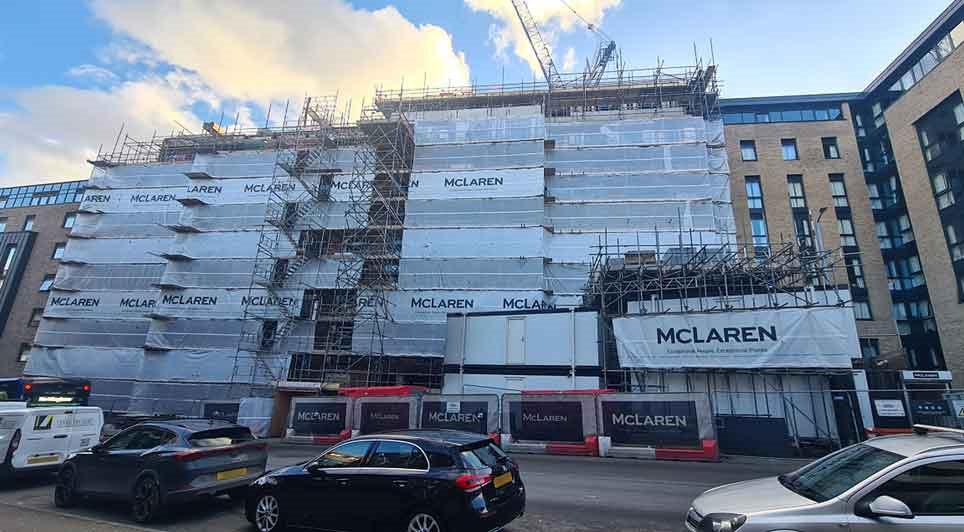
18/02/2025
McLaren Construction Midlands and North is making strong progress on a landmark 323-bedroom student accommodation project on Talbot Street, Nottingham, with plans to welcome students by September 2025.
The £25.8 million development, located at 77 Talbot Road, is replacing a former five-storey offic
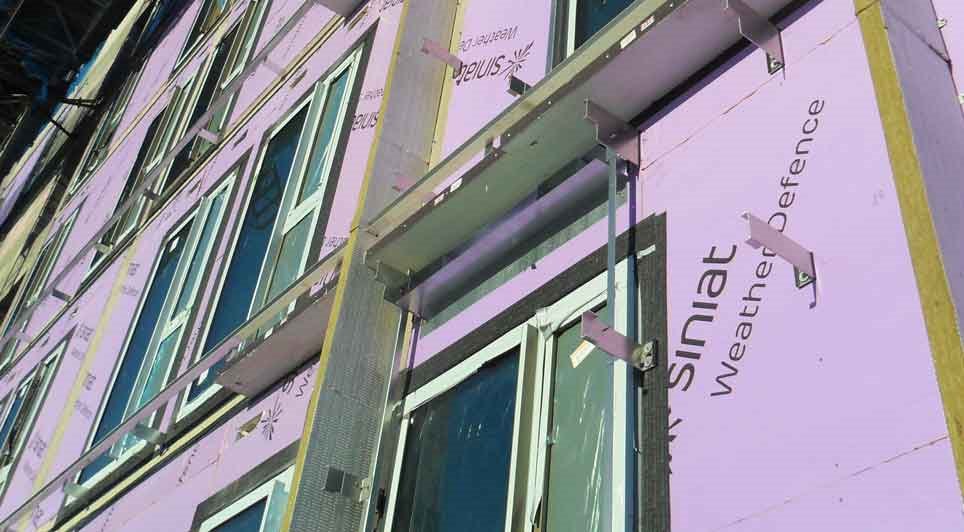
18/02/2025
Cavity fire barriers play a critical role in fire safety, preventing the spread of flames and smoke through concealed spaces in buildings, such as wall cavities, ceilings, and floors. Proper installation of these barriers is not just a regulatory requirement but also a measure that can save lives an
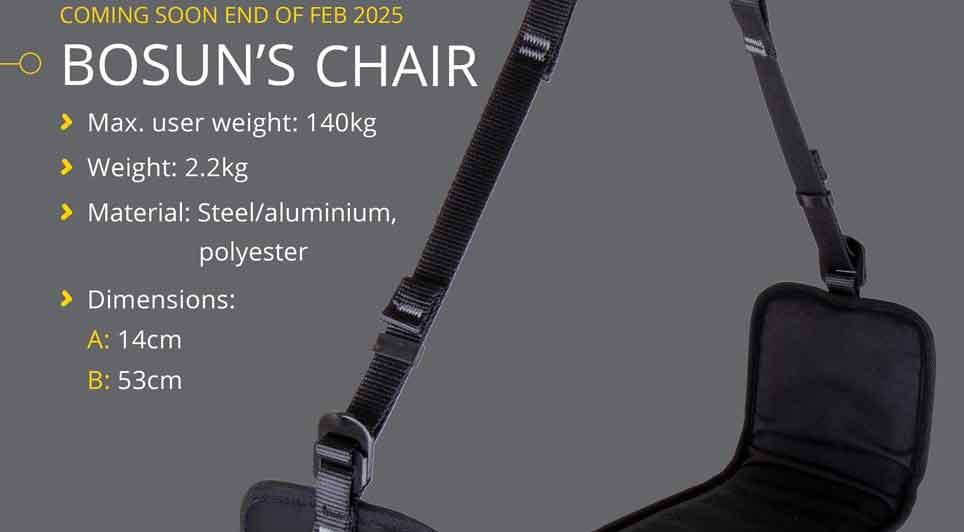
18/02/2025
SSD Safety Ltd are leading Safety Equipment Suppliers in the UK.
We sell, hire and service a wide range of safety equipment, from leading safety manufacturers.
We are dedicated to supplying you with the very best health and safety supplies. We ensure our products are of a high standard to help yo

17/02/2025
Higgins Partnerships, in collaboration with A2Dominion, has officially completed Hanwell Square, a new mixed-use development set to transform the heart of Hanwell, West London.
The project brings 360 new homes, a range of community amenities, and sustainable living options to the area, further enh

17/02/2025
A major new regeneration project is set to transform Stoke-on-Trent's city centre, as Stoke-on-Trent City Council grants preferred bidder status to Genr8 Kajima Regeneration Limited (GKRL) for the multi-million-pound Etruscan Square development.
The project will breathe new life into one of the la
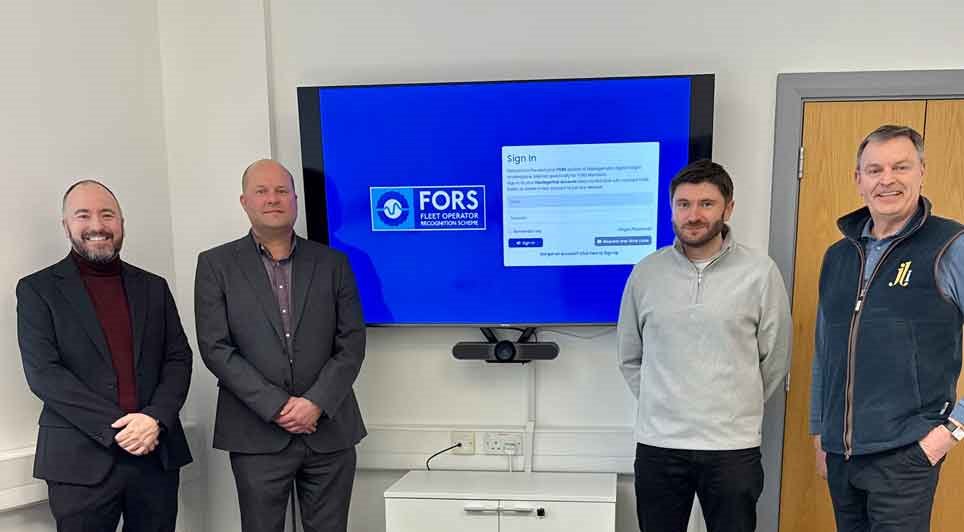
17/02/2025
HaulageHub has announced a new partnership with the Fleet Operator Recognition Scheme (FORS), the UK's top fleet safety accreditation program.
This collaboration aims to broaden the HaulageHub network by allowing the 4,700 FORS-accredited operators to connect and trade work with other certified FOR
 UK
UK Ireland
Ireland Scotland
Scotland London
London










